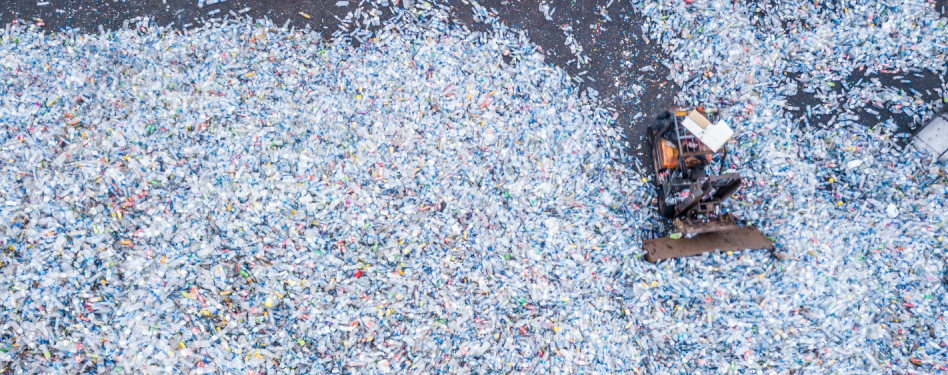
Waste affects every part of our communities and effective waste management strategies are critical to ensuring both public and environmental health. Mismanaged waste causes degradation to our environment, releases toxins into our bodies, damages oceans, creates greenhouse gases and costs businesses and municipalities billions to manage. And it places undue burden on underprivileged communities.
On average, Americans produce over 1,500 pounds of waste per person every year. Only one-third of these materials are recycled and the rest goes to landfills, incineration and the environment, including our parks, streams and oceans. An estimated 400,000 to 1 million deaths annually are attributable to diseases caused by mismanaged waste in low to middle income countries.
These statistics can be overwhelming. But it doesn’t have to be this way.
The good news? Unlike some environmental challenges that may be beyond the control of an individual, waste is an issue everyone interacts with on a daily basis as nearly every human activity is responsible for waste generation.
We all want the world to be a cleaner and healthier place for future generations, and we can’t accomplish this without bringing a critical focus to waste reduction and elimination efforts.
Learn more about TRUE's mission
THE SOLUTION IS WITHIN OUR REACH
Individual action is an important part of the solution, but corporate involvement is critical to achieve the change we need. The 5,589 largest public traded companies in the U.S. send 342 metric tons of waste to landfills and incinerators every day at a significant cost to both society and themselves.
Businesses must go beyond and think critically about how to redesign processes so that less waste is produced in the first place. Implementing zero waste business practices requires rethinking, retraining, new tools and strong leadership to change current waste systems.
Our current waste management systems remove wasted materials in the quickest way possible from the public’s view. This approach has encouraged a throwaway society because consumers either aren’t aware of the consequences of their actions or don’t demand accountability from a producer.
More companies need to demonstrate leadership by shifting to circular thinking and prioritizing processes, operations and actions to reduce waste and resource extraction upstream. In our current system, many of our wasteful practices stem from a lack of design and are the result of inefficient business practices.
Waste is a design failure, and managing waste is a design challenge for which the TRUE Rating System provides a comprehensive framework.
TRUE ENSURES A HEALTHIER FUTURE
At USGBC and GBCI we are committed to the safe and efficient operation of facilities, as we know that this protects both people and the environment. The TRUE Rating System inherently provides avenues to address the COVID-19 crisis, while also addressing sustainability.
The greatest risk reduction and resiliency strategy TRUE provides is an overarching prevention of waste and even recyclable materials from being generated in the first place. This means that:
- Businesses can lower their cost and quickly recover from this economic downturn, and
- Less materials to handle means less risk of injury or illness for janitorial staff and waste management workers.
For what materials are left, many TRUE credits and minimum program requirements encourage proper collection and sorting of solid waste and recyclable materials at the source. This reduces the need for workers to come into direct contact with contaminated materials.
The rating system also includes strategies that benefit occupants and the community in a time of need, such as food donation, using local businesses and growing food on-site.
And as we continue to prioritize efforts to build people’s trust that their spaces are healthy and have a positive impact not only on them but the economy at large, TRUE provides important pathways to achieve this – from a health and wellness, resilience and equity standpoint but also from an economic one.

At TRUE, our mission is clear: helping buildings, businesses and communities strengthen their commitment to resource management and eliminate mismanaged waste. We look forward to supporting your own organizational goals in pursuit of this work.
Learn more about TRUE's mission